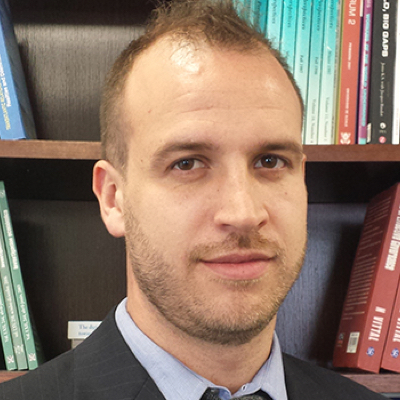March 09, 2011
The AP’s Ben Fox has a story today on hopes by various former members of the Haitian army (Forces Armée de Haiti, or FADH) that the next president will reconstitute the military force. Haiti has been without an army since President Aristide disbanded it in 1994 following the results of polling that showed 62 percent in favor of the move.
Describing men who “represent nothing more than an informal movement of Haitians eager to re-establish an army – an idea that unnerves Haitians who remember times darkened by military coups, oppression and abuse,” Fox notes that both presidential candidates seem to favor reviving the army, despite its record of human rights abuses:
Presidential candidate Mirlande Manigat, a university administrator and former first lady, says that if elected, she would favor the formation of a military to protect the security of the nation. But, she stressed, it would have to honor human rights.
“Nobody would like the armed forces as they existed before,” she told The Associated Press. “There’s no way the old practices could be renewed in Haiti.”
Martelly, who in the past has suggested he could have dictatorial tendencies as president (abolishing congress and outlawing all strikes and demonstrations in a “Fujimori-style solution”), and who openly supported the coups against Aristide, wants the Haitian army to replace MINUSTAH, which itself has committed a variety of serious rights abuses since arriving in Haiti in 2004:
Her rival, former singer Michel “Sweet Mickey” Martelly, says a new national security force could include engineers and a medical corps to respond to natural disasters. He also would like to see Haitian troops replace the U.N. force, known by the acronym MINUSTAH, that has kept order since Aristide was deposed.
(Martelly also has stated previously that he would like to see the reconstituted FADH take on a role in rebuilding the country, including the planting of trees – the latter an idea also proposed in the past [PDF] by former FADH members such as the now-deceased Remissainthe Ravix.)
Some of the former FADH, Fox notes, have problematic pasts:
[Nestor] Apolon, for one, proudly acknowledges he fought with the rebels who ousted Aristide for a second time in 2004. A man guarding the gate wears a key chain adorned with the faces of Francois and Jean-Claude Duvalier, the former dictators known as “Papa Doc” and “Baby Doc.”
Others in the compound served from 1991-94, when the army ruled Haiti and committed some of the worst human rights violations in recent memory. Some contend they’re technically still on duty: They claim Aristide’s 1995 demobilization was unconstitutional.
Together, it’s a tableaux of the pro-military fringe right, a looming presence in Haiti.
“The Haitian army has basically been an army that’s been used against the Haitian people,” said Human Rights Watch counsel Reed Brody. “It was there as an instrument of repression, so it’s hard to see what Haiti gains by bringing back the army.”
While it may be “hard to see what Haiti gains” from giving guns and power back to murderers and coup participants — especially considering Jean-Claude Duvalier’s recent return to the country — the gains for the would-be recruits seem clear in the absence of adequate jobs programs, or other alternatives, as Haitians continue to be sidelined from relief and reconstruction contracts. Fox writes:
The prospect of a new military is especially attractive for young Haitians, given the scarcity of jobs. An estimated 70 percent of the population is younger than 30, according to the Washington-based group, Population Action International. Even before the January 2010 earthquake, unemployment was widespread and 80 percent of the people lived in poverty.
It is also notable that claims of former FADH that they’re “technically still on duty” are nothing new; “We’re not former military; we are military,” the former death squad leader, 2004 coup figure, and former police chief Guy Philippe told the San Francisco Chronicle in 2004. Human rights investigators who visited Haiti after the 2004 coup against Aristide also encountered armed paramilitaries who claimed to represent the reconstituted FADH. Indeed, “reports that the disbanded Haitian Army had returned and was openly patrolling and killing in the poor neighborhoods” was something that a November 2004 investigation [PDF] for the University of Miami School of Law sought to assess.
Although not a focus of the article. AP touches on this as well. Fox talks to Police Chief Mario Andresol
who was an army captain before being inscribed into the police force, said Haiti’s next government should break a past practice of having soldiers perform civilian assignments. For example, after going through a year of training at the U.S. Army-run School of Americas at Fort Benning, Georgia, Andresol found himself assigned to traffic duty. Such misuse, he said, created an opportunity for trouble by putting soldiers trained for combat in public service roles.
Andresol, according to the AP article, does not seem opposed to a revival of the FADH:
“According to the law, the police cannot establish order. Our mission is to maintain order,” he said.
If the army were resurrected, Andresol is certain its ranks would be filled. Just take a look at the police force, he says: At least 30,000 people are waiting to join.
No analysis in the article is offered to explain why, if there might be funds sufficient to reconstitute the army, those same funds could not be used to hire some of the supposed 30,000 “waiting to join” – many of whom would not bring with them the checkered histories of rights abuses and involvement in coups that many former FADH and former paramilitaries have.






